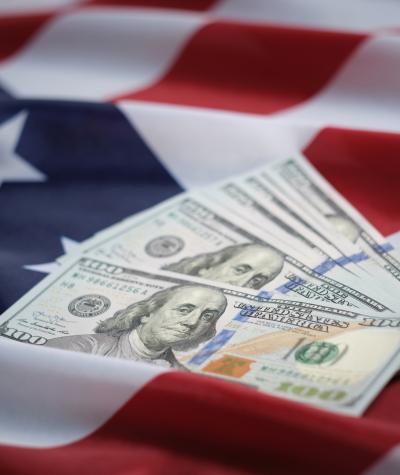When candidates run for federal office, they must abide by federal campaign finance laws that prohibit them from accepting money from unlawful sources like corporations or federal contractors, limit how much they can raise from each donor, and require them to disclose who’s funding their campaign. These basic requirements ensure that elections are transparent and help keep politicians accountable.
Sometimes, however, when a federal candidate has previously run for or served in state office, they try to use money raised through a state campaign or committee to advance their federal candidacy.
Doing so violates federal laws that prohibit candidates for federal offices from directing or transferring funds that don’t comply with federal contribution limits and reporting requirements — often referred to as “soft money” — to a federal committee.
When congressional candidates try to maneuver around this important legal prohibition, it’s the job of the Federal Election Commission (FEC) to investigate and enforce the law.
That’s why CLC has filed a complaint with the FEC alleging that André Jacque, a Wisconsin state senator who ran for Congress in 2024, used a type of “straw donor” scheme to illegally direct or transfer soft money from his state campaign committee to his federal committee.
Campaign finance records show that within weeks of Jacque declaring himself a congressional candidate, Jacque for Senate, his state campaign committee since 2009, suddenly began making transfers to Jacque’s friends, family, and political allies in March of 2024.
Shortly thereafter, those recipients made contributions of similar amounts to Jacque’s federal campaign committee, indicating that they were merely serving as intermediaries to transmit $37,500 from Jacque’s state campaign to his federal campaign.
André Jacque isn’t the first candidate to try and make use of soft money from a state campaign or PAC in a federal race. In recent years, CLC has filed similar complaints against Florida Governor Ron DeSantis, former Tennessee state Rep. Beth Harwell, Rep. Aaron Bean, and former Florida state Senator Kelli Stargel, each of whom illegally transferred funds from their state committees to federal super PACs working to help them get elected. But Jacque’s scheme is different in that it used “straw donors” in an effort to conceal the fact that the money came from his state campaign in the first place.
As a result, these transfers not only violated the laws barring federal candidates from directing or transferring soft money in connection with a federal election. They also broke a federal law that prohibits using straw donors to make contributions while concealing the true contributor’s identity.
The supposed contributors disclosed on Jacque’s federal campaign disclosure reports — including Jacque’s family members and political allies — weren’t the true sources of the funds but were instead simply transferring Jacque’s state campaign funds to his federal committee.
Voters have a right to know how candidates are financing their campaigns. A straw donor scheme like this deprives voters of their right to accurate, transparent information about where campaign money is coming from. That’s why we’ve asked the FEC to investigate this matter and enforce the law.
Unless the laws prohibiting soft money are robustly enforced, it’s very likely that more and more candidates will try to keep up by funneling illegal soft money to their federal committees.
The FEC needs to take this problem seriously by investigating soft money schemes and imposing meaningful penalties when the law has been violated.

